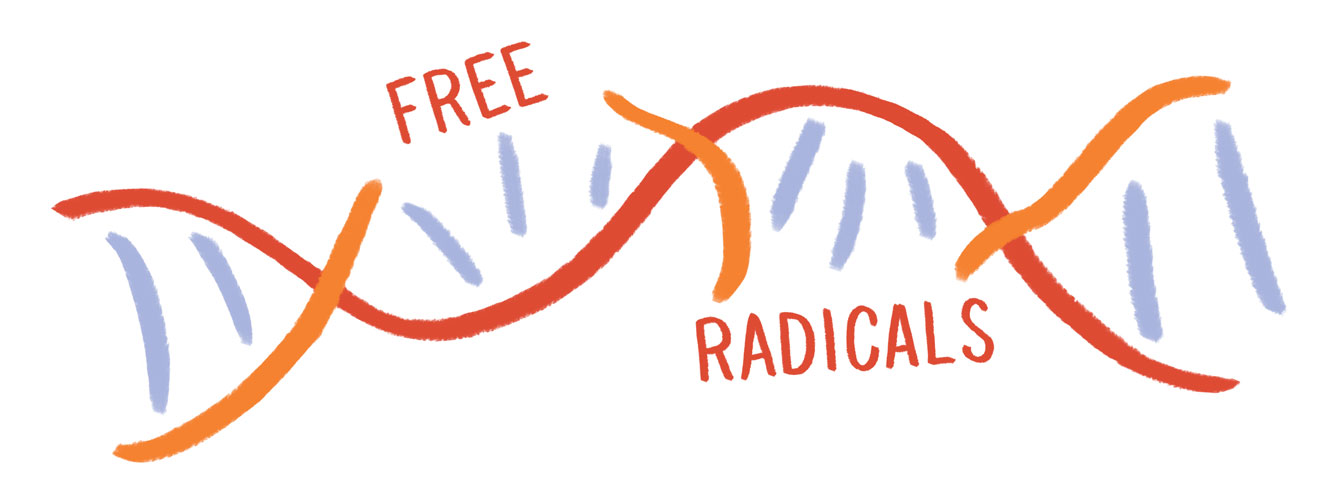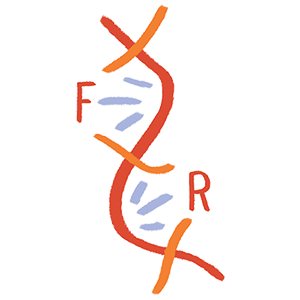
A photo of Shay Akil McLean.
Shay Akil McLean, also known by his Twitter handle ‘Hood Biologist’, is a sociologist and biological anthropologist studying knowledge production and medical ethics at University of Illinois, Urbana-Champaign. He is also a writer and activist who founded the site Decolonize All The Things and the forthcoming Decolonize All The Science. I spoke with Shay Akil about what decolonial science is, and how scientists should organize in our current political moment.
How did you become the ‘Hood Biologist’?
I was in a previous PhD program where I ended up leaving because after I had my qualifying exam I was told that my dissertation proposal was not up to par because it didn’t account for the biological differences between blacks and whites. I ended up leaving the program because I didn’t really have a way to address that that wasn’t biologically determinist. Within the different work that I’ve done I’ve always thought it was important to understand the history of that scholarship. So those experiences ended up leaning me more towards the production of science and knowledge over time. I had to know the history of race and racialization and biological criteria to reveal that these aren’t useful tools. Because not only were they created to be a particular kind of hegemonic work, they also are extremely inaccurate.
So my work now is Science Technology Studies, looking at the history and anthropology of science and technology. I ended up meshing that with the activist and community work that I’ve done. I’ve never seen those two things as separate. I feel like this Twitter handle accurately reflects the fact that I understand my expertise as a scholar, someone who has knowledge in the field of human evolutionary biology. With that training I’m still not separate from my community. My neighborhood is always in my mind when I’m thinking about the work that I do. So thinking about communities and what people need and how do we address social problems is central to how I do my work and helps guide my work, my ethical practice.
Decolonize All The Things started with me wanting to permanently put some free resources for political education there. Now I’m putting in the work to launch Decolonize All The Science which is more specifically about science communication, STS, and also the larger political contestations that occur within what we know of as science.
You had a piece right after the election, We Need Decolonial Scientists. How would you describe what a decolonial science looks like?
First, what is colonial science? Colonial science does particular kinds of work, it produces specific kinds of categories for regulation of populations. And then through those regulations we have a different negotiation between state institutions, for profit institutions, industry, and the general populace. That has to do with the notion of biological essentialism. The notion that when you are born the state tells you that you are this gender you are this race. Those ascribed statuses are fixed but they actually function to ensure that particular resources, rights and actions are distributed across different social positions. When we look at the history of colonial science we start looking at the way that people have been given resources and rights that have been then justified through scientific practice and has been taken away from others. All of these different contestations surrounding gender, surrounding race, surrounding ability, surrounding class, are all directly connected to the production of scientific knowledge. The notion of homosexuality, which was created in the late 18th century specifically in the United States, was created first through scientific scholars, psychologists, physicians. They have always been part of creating or legitimating what is real and what is not real. Then the state uses that in order to regulate and produce law and policy. They then instruct institutions on how they’re supposed to treat particular people.
Decolonial scientists have a particular kind of ethical vision that science should be practiced with humans in mind. Not helping the state maintain sovereignty over the land and the resources and the bodies on the land. That means you very carefully make decisions with regard to how you do your scholarship. That means it changes the way you do your projects. That means that you have direct conversations with community members who are directly impacted with the way you do your work. We start having different kinds of conversations about responsibility, about who is our audience. Scientists have been excluding the public from a lot of our conversations and then we expect them to still understand the value of our work, which is quite foolish.
Decolonial science also understands that there are other realms of society and everyday life, and we’ve got to be part of those conversations. For instance, the defunding of public education. That’s something that scientists should be directly involved with. Why? It particularly pushes out specific people from being able to participate in generating scientific knowledge that can get us closer to asking better questions, asking different questions than we already have. Decolonial scientists are then asking different questions and it’s informed by a general idea that no group of people, nobody’s humanity is negotiable.
How do you feel like your identities affect your understanding and experience of science?
In my opinion, I don’t think it’s my identity, it’s my sociopolitical position. The things that I have experienced as a consequence of being racialized as black, a consequence of being misgendered, and as a consequence of being supposedly heterosexual. So in a lot of ways, I wouldn’t even use the framework of identity necessarily. A lot of people definitely ask me too, and it’s always really uncomfortable because I don’t think it’s a question of that. Because if I decided I’m a white man right now nobody would believe me. When we refer to identity we commonly refer to individual level interactions and constantly we have a conversation about identity as if it’s about attitude and feelings. These are issues of power not attitude.
Identity politics is actually the thing that we have always been fighting against. Whiteness is identity politics. And your gender, all these things were constantly created in order to be argued on the ground of the rules of whiteness, and cishet patriarchy as well as the notion of who’s the most useful or should be the most valued with regards to being disabled and not disabled. And the same thing goes with class. So we constantly see these very similar power dynamics that are occurring in these disparate positions, in the form of positionality.
You’ve been critical of the March for Science and the narrative they’ve put forth about science’s pursuit of objective truth. What kind of organizing would you like to see scientists doing?
One of the things that I find the most interesting is where have scientists been in the first place? Science has basically ignored a lot of these problems, and perpetuated a lot of the same dangerous actions in their labs. The way that they treat women, people of color, disabled scientists, queer and trans scientists for example. The thing that they refer to as objective interestingly enough maintains the status quo which is a political decision.
If we don’t know what scientific institutions and scientists have done over time, we won’t know what they’re willing to do now in this present moment. And from what I understand and know of the history of science, especially in the United States, is that scientists have been willing time and time again to participate in the state’s interest and marginalize particular populations and sterilize particular populations and experiment on particular populations. And if you did it then, why wouldn’t you do it now under Trump?
So I believe that’s is a cop-out and what it does is it opens up an opportunity for everybody to not act. To not be held accountable. It shifts the blame and the responsibility to other people. We can’t do better if we aren’t taking the facts and the information that we have and then using that to assess how we can do better by one another, treat each other better. All of these technological innovations and humans still do horrible things to other humans in the name of profit.
What gives you hope in driving the work that you do?
I think the best answer is to refer to the wise words of James Baldwin. “I can’t be a pessimist, because I am alive.” We have a set of responsibilities. We have children to feed. We have communities to defend. We have people to make sure that they get the opportunity to have a good quality life. And they get the right and opportunity and dignity to live a life of their own choosing. There are Black trans women being murdered. I don’t have time to not resist. I can’t afford not to. I have people that I love and I need to make sure that I take care of. And there are other human beings who I do not know in that kind of way but I don’t need to love them and care about them in order to believe that they have a right to be treated fairly as a human with dignity. We can’t afford to just give up on that. I can’t afford to do that because if I don’t have hope then I can’t hold anybody accountable. I can’t hold myself accountable.
This interview has been edited for length and clarity.





